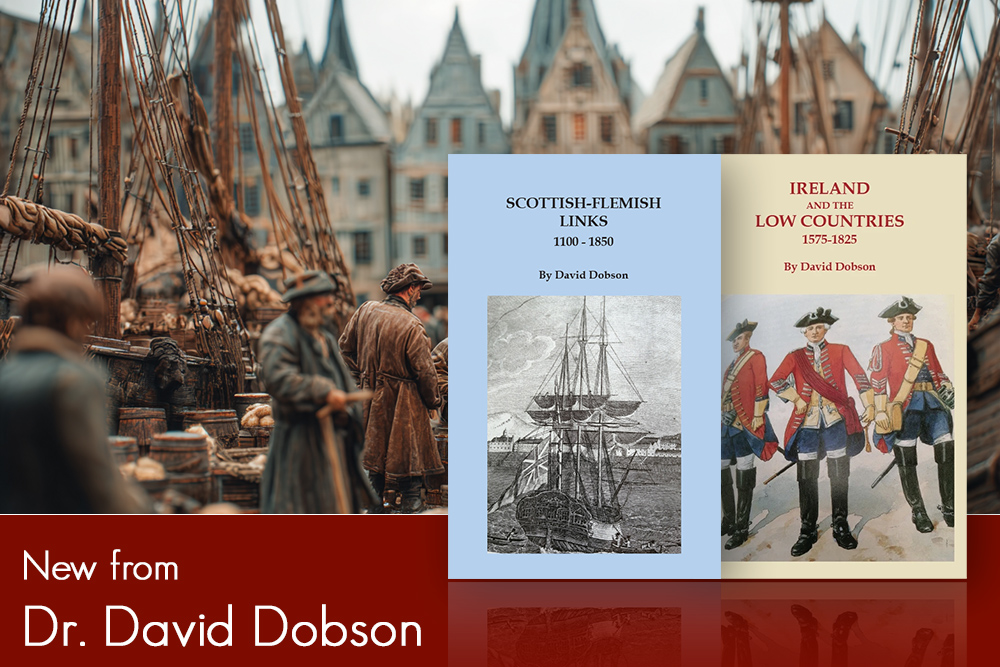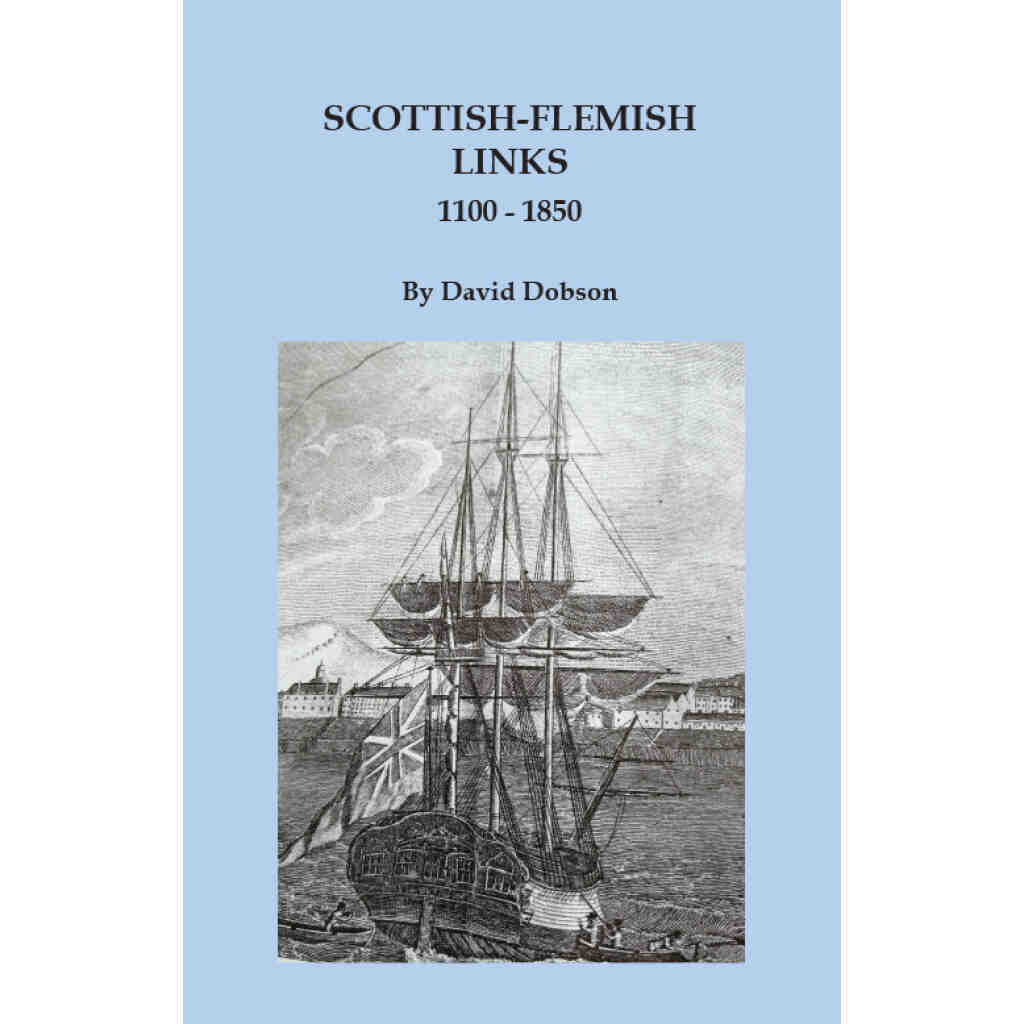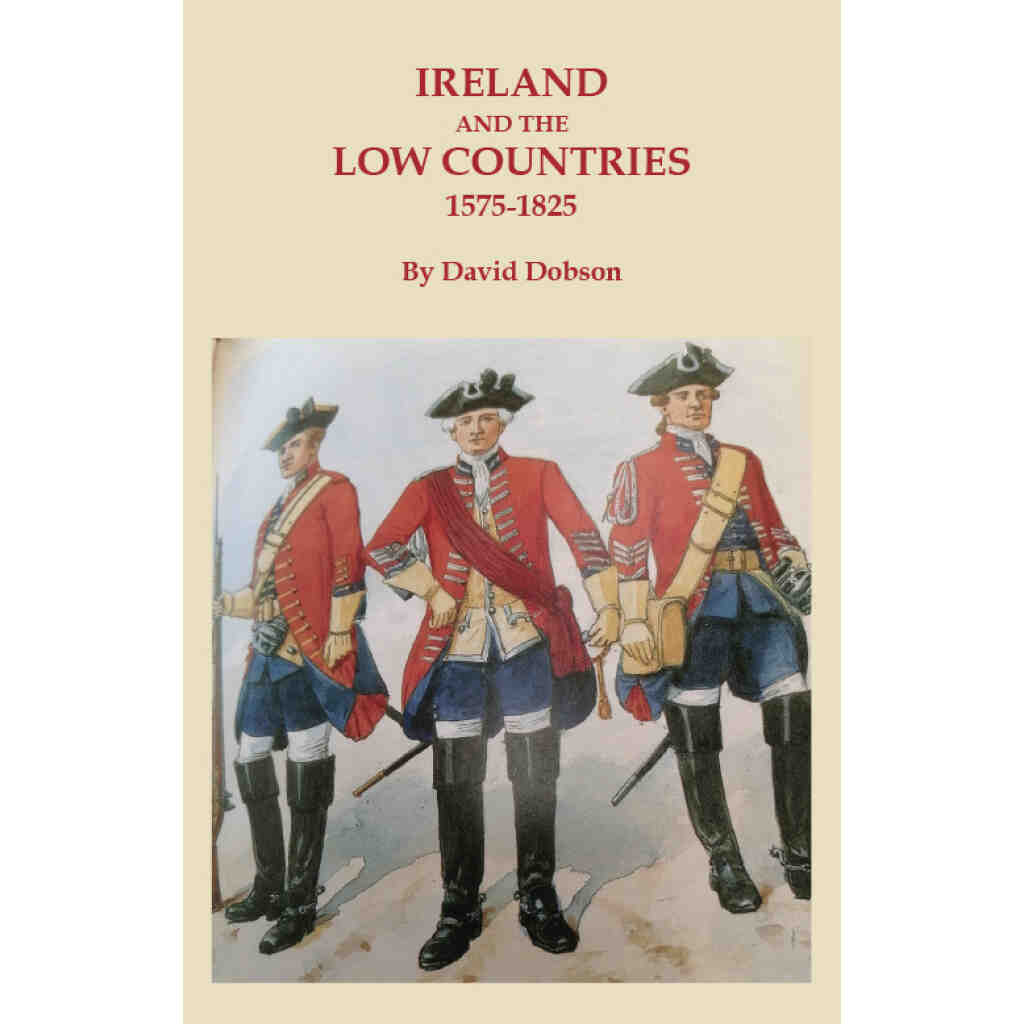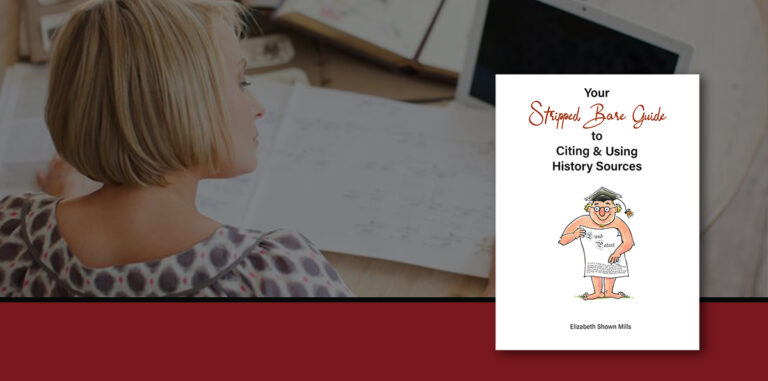
Two New Books from Prolific Author, Dr. David Dobson
Dr. David Dobson’s latest books concern the migration of Scots and Irish on the one hand and the Flemish Low Counties on the other.
In Scottish-Flemish Links, 1100-1850, Dobson shows that the Flemish connections with Scotland can be traced from the reign of King David II, who encouraged settlement by Norman-Flemish families from England in the early twelfth century. During the Middle Ages, Flanders was heavily dependent on England and Scotland for wool. Flemish merchants and craftsmen settled in various towns, and especially Canongait. Burghs were established, generally on Scotland’s east coast, to encourage trade with Flanders, while castles and churches were constructed often using Flemish craftsmen. The volume of trade between Scotland and Flanders during the Early Modern Period generated an expansion of ships and seamen in both Flanders and Scotland. Scotland exported food, such as fish, and raw materials, especially wool, hides, and coal, while manufactured goods and textiles were sent from Flanders. From the late sixteenth until the early nineteenth century, most of the Scots in Flanders were soldiers. The Scotch Brigade fought in the Low Countries against the Spanish, who were attempting to keep the Dutch and Flemish in the Spanish Empire. View Book Details
In Ireland and the Low Countries, 1575-1825, Dr. Dobson explains that the continuous stream of ships bound for or returning from the Low Countries encouraged Irish merchants to settle there. Low Countries universities, such as the University of Leiden, attracted Irish scholars. Most of the Irish migrants in Flanders or elsewhere in the Netherlands, however, arrived as soldiers, some in Spanish service, others in English or Dutch service. After Charles II was restored to the thrones of England and Ireland in 1660, he encouraged the settlement of Protestants from the Netherlands and Flanders, as well as French Huguenots, in Ireland. On 23 August 1661, King Charles II approved of a bill naturalising Dutch and other Protestant strangers ‘for there are now many Protestants in France, Flanders, and other parts that are industrious people, that if they might be there naturalised, would come over and bring with them persons skilled in making several sorts of manufactures.’ View Book Details




